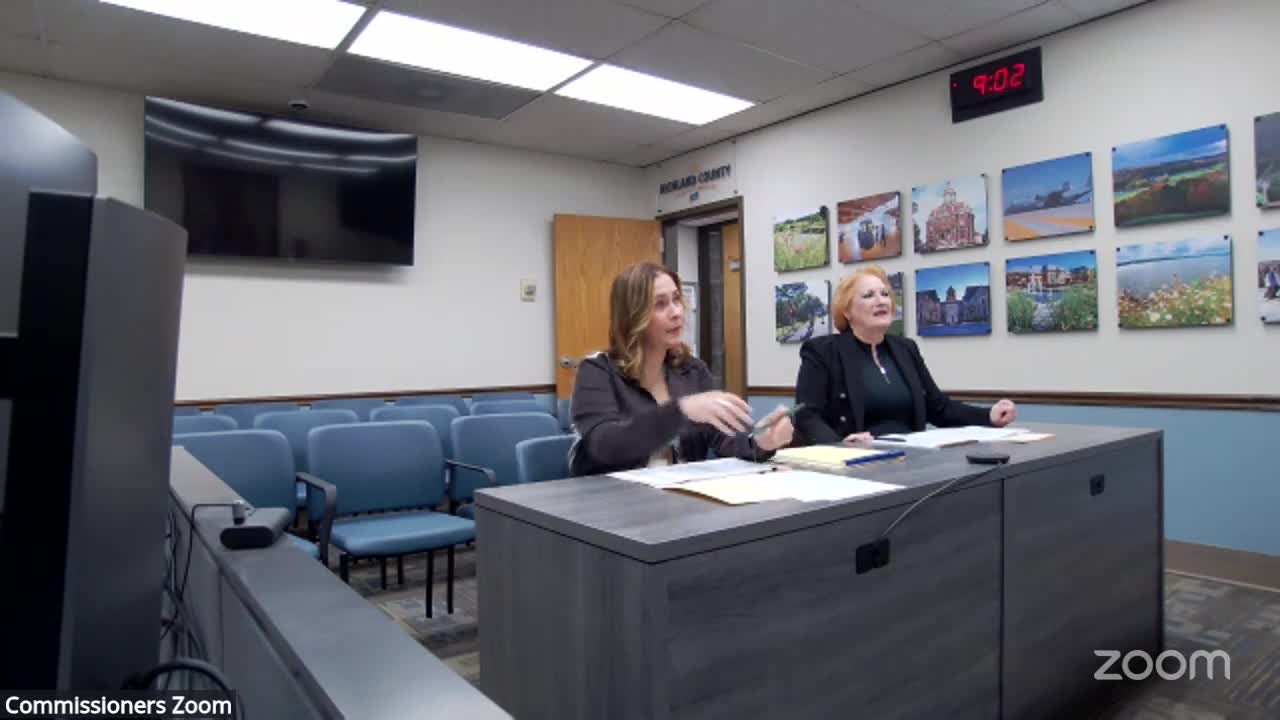Probate court outlines staffing shift, new AOT role and court-reporting strain in 2026 budget
Get AI-powered insights, summaries, and transcripts
Subscribe
Summary
Probate Court staff told Richland County commissioners that multiple retirements have prompted restructuring: a new deputy clerk/court manager/investigator role, delayed replacement dates, and plans to use in-house staff for court reporting amid persistent shortages and rising transcription costs. Staff linked some changes to House Bill 96 and new
Richland County Probate Court officials told the Board of Commissioners on Oct. 30 that a spate of retirements and new statewide rules will reshape staff roles and workloads in 2026. Judge'office representatives said they have restructured duties so a newly retitled deputy clerk/court manager/investigator can handle court investigations and help stand up an assisted outpatient treatment (AOT) program tied to civil-commitment follow-up.
The court said multiple long-serving staff are leaving and that one deputy clerk, Lori, has a confirmed last day of Feb. 27, 2026. The court plans to hire Paige Davis, who is projected to begin on Nov. 6 at a starting rate cited in the budget materials as $21 per hour; staff said that rate is above the posted pay-grade minimum because Davis brings private-practice civil procedure experience that will reduce training time and support compliance with new Supreme Court deadlines.
The court described several program pressures driving the staffing change. Officials said they recorded 56 newly filed guardianships in 2024 and were on track for a similar volume by the end of the third quarter; the court estimates an ongoing inventory of roughly 640—650 pending matters. Staff said guardianship filings often follow assistance delivered under AOT, and that AOT participants sometimes need longer-term supports that can lead to guardianship filings. The court proposed reassigning some case-processing work to deputy-clerk-level positions so investigators and magistrates can devote more time to investigations and active case management.
Probate staff also flagged a shortage of court reporters and significant costs when outside transcription is required. They cited a recent transcript expense of $5,505 for a two'day proceeding and said unpredictable family litigation can drive multi-day transcription bills. To mitigate costs, the court said it is considering sending a clerk for court-reporter certification so some hearings could be transcribed in-house.
Officials linked several operational changes to state-level reforms. They said House Bill 96 and recent Supreme Court rule changes impose new timing and online-filing requirements for certain dockets. The court noted the Ohio Supreme Court previously offered technology grants for court computerization but that those grants have been curtailed, requiring the court to phase digitization tasks over time using internal funds.
Commissioners asked about the pay decision for the incoming hire and about timing for retirements; staff confirmed the Nov. 6 start date for Paige Davis and the Feb. 27 retirement date. Commissioners and the county administrator expressed appreciation for the court's written budget summary and for efforts to hold costs while maintaining services.
Looking ahead, the court said it will continue scanning historical records to meet impending online-document mandates and will monitor grant and state-funding changes that affect technology and transcription budgets.
